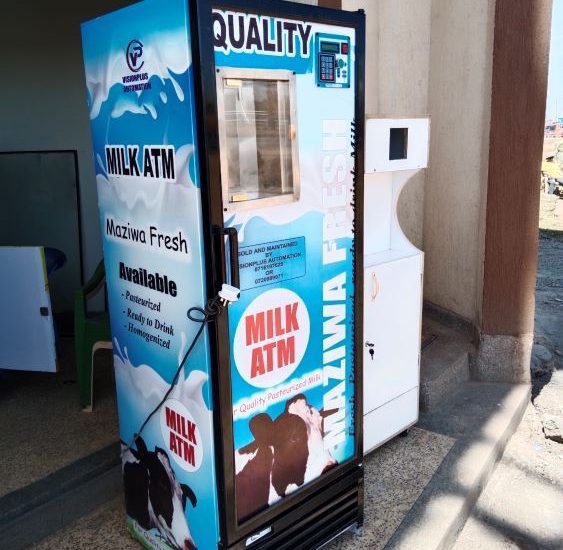- September 14, 2023
- Posted by: VisionPlus Automation
- Categories: milk vending business, Milk vending machines

The Role of Milk Vending Machines in the Dairy Market
The Role of Milk Vending Machines in the Dairy Market
Dairy farmers play a crucial role in global food production, but they often face challenges in the marketing and distribution of their milk. Milk vending machines have emerged as an innovative solution to address these difficulties, providing numerous benefits for dairy farmers. This essay explores how milk vending machines empower dairy farmers in the market by improving accessibility, eliminating intermediaries, ensuring fair prices, and promoting sustainable farming practices.
1. Enhanced Accessibility:
Dairy farmers, particularly those in rural areas, often struggle to access reliable markets for their milk. Milk vending machines offer a direct link between farmers and consumers, eliminating the need for intermediaries and creating greater accessibility to the market. Farmers can now conveniently sell their milk to customers without the constraints of distance or transportation, ensuring a consistent outlet for their produce.
2. Elimination of Intermediaries:
Traditional distribution channels often involve multiple intermediaries, such as wholesalers and retailers, who take a significant portion of the revenue earned from the sale of milk. Milk vending machines eliminate the need for these middlemen, allowing dairy farmers to bypass the complexity and reduce their dependency on intermediaries. By directly selling their milk through vending machines, farmers can retain a larger share of the profits, enabling them to reinvest in their farms and improve their livelihoods.
3. Fair Pricing and Transparency:
Milk vending machines provide a transparent and fair pricing mechanism, ensuring that dairy farmers receive a just value for their products. These machines often calculate the price based on volume sold, enabling farmers to have more control over their income. Additionally, by eliminating the possibility of price manipulation by intermediaries, milk vending machines promote a more equitable market environment and create a level playing field for all farmers.
4. Promotion of Sustainable Farming Practices:
Milk vending machines contribute to the promotion of sustainable farming practices among dairy farmers. By providing a direct market outlet, these machines encourage farmers to prioritize the quality and safety of their milk. Farmers are motivated to comply with strict hygiene and quality standards to meet consumer demands. This, in turn, fosters awareness and adoption of sustainable farming practices, such as improved animal welfare, reduced use of antibiotics, and responsible waste management.
5. Diversification of Income Streams:
Milk vending machines offer dairy farmers an opportunity to diversify their income streams. In addition to selling raw milk, farmers can explore value-added products such as flavored milk, yogurt, or cheese through these machines. This diversification enables farmers to tap into a larger market base, cater to varying consumer preferences, and potentially increase their revenue. The flexibility of milk vending machines allows farmers to adapt to changing market demands and maximize their income potential.
Conclusion:
Milk vending machines serve as a transformative tool for empowering dairy farmers in the market. By improving accessibility, eliminating intermediaries, ensuring fair pricing, promoting sustainable farming practices, and offering income diversification, these machines enable farmers to strengthen their position and enhance their livelihoods. The adoption of milk vending machines not only benefits farmers but also contributes to the overall development and sustainability of the dairy industry. It is a platform that empowers farmers to take control of their produce, make informed decisions, and thrive in the dynamic agricultural market.
